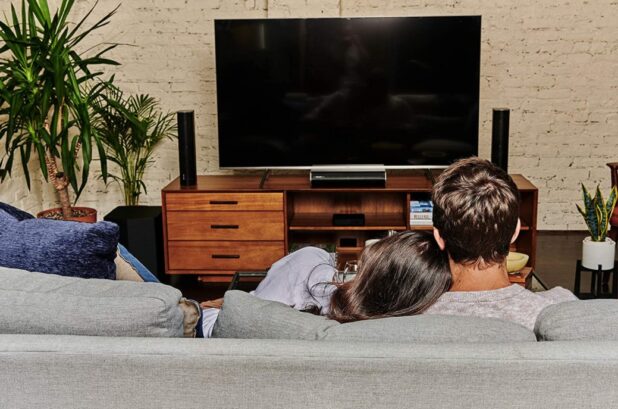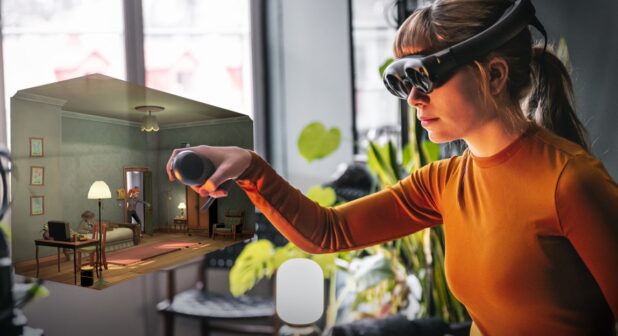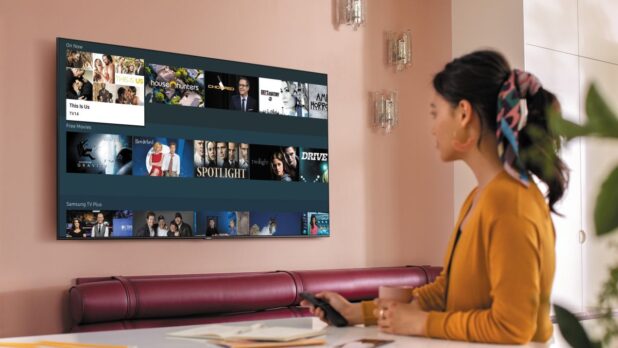Nothing seems to stand still for too long in the modern world; everything’s in flux, including our relationships and interactions with various places. The office, for example, has in recent years transformed into something else; it can be a cultural center, social space, or part of our homes (especially since the rise in remote working). In many cases, the office is all three of those things. Our homes, too, are no longer just spaces to stay protected from the elements or store our belongings. They’re fast becoming bonafide entertainment hubs, on par with anything that you’ll find in public spaces.
So how did this happen? There’s no one answer, but several. In this blog, we’ll take a look at the leading contenders.
Table of Contents
Individual Desires

The home felt very different back in the 1950s. In the absence of entertainment, families would spend most of their leisure time sitting in the living room, talking to one another. The emphasis was on the group; all people shared the same source of entertainment which, in this case, was each other. But the rise of technology pushed people away from thinking about the collective and into thinking about the self. There was little need to talk in the living room when you could have your own version of fun in your bedroom. This shift led to a growing demand for individual entertainment devices, which the market duly provided.
Home Gaming
It’s easy to forget that the idea of playing digital games within the home is only a few decades old. But we’ve come a long way since the early days of home gaming systems. Today, virtually everyone has a home gaming system in their home. Why? Because laptops and smartphones can now be considered gaming systems. With them, users can play classic games, MMORPG Games, or play online casino jackpot games at Wildz, among others. There are still plenty of people who have video game consoles, but they’re no longer required. The capabilities of personal devices mean that even casual gamers can enjoy high-end gaming titles from the comfort of their own home.
Entertainment Systems

Home entertainment systems have been improving since the 1950s, but it feels like there’s been a massive leap forward in recent years. Indeed, it’s hard to imagine where things might move in the coming decade. How do you improve on what’s currently available? It’s not just the quality of home entertainment systems that catches the eye, but just how affordable they are. With stunning HD televisions and a host of outstanding streaming services now the norm, there’s never been a better time to spend a Friday night indoors. Indeed, they’re becoming so good that there’s a very real chance that the cinema could face an uncertain future. Home speakers, especially smart speakers, have also upped the home’s entertainment credentials.
Growing Expectations
Finally, let’s think about the expectations people have of their home, which are quite rightly high. In an age when it’s more difficult – well, more expensive – than ever before to get your hands on the keys to a home, it’s logical that people would want more from their property than simply some rain protection and storage space. They want a space that can meet various needs that they have, including their entertainment needs. Nobody who’s gone through the long and arduous process of buying a home wants to feel like they have to venture out to have a good time!
Virtual Reality and the Metaverse

We’re on the cusp of a new dawn of entertainment. There’s been talk of virtual reality gaming (and other forms of entertainment) for decades, but it took a while for the technology to catch up with the idea. But now, we’re getting there. The projected growth of the virtual reality market is staggering; as of 2020, the market was worth around $7720 million. By 2027, that market will be worth around $27000 million. The reason? More and more people are getting on board with the idea of virtual gaming. As headsets become cheaper and developers produce better-quality games, we can expect that logging into a virtual world of gaming will become more common.
Closely tied to this will be the rise of the metaverse. That’s about much more than gaming. In the coming decade, we’ll see more people staying at home and not only entertaining themselves but socializing, too. Rather than going out to a bar to meet friends or inviting friends over to their homes, people will link up in the metaverse and enjoy themselves in that digital space. This is likely to have fewer participants than gaming would but will still mark a significant shift.
Anti-Entertainment
It’s never been possible to have more fun than it is right now. Just like smartphones combined various technologies (MP3 player, camera, calculator) into one device, the home has meant people have less need for external forms of entertainment (the cinema, gaming arcades, bars). However, we can expect at least some anti-entertainment backlash. For one thing, people like heading out onto the town, and the home can’t recreate that entirely. Similarly, as people are expecting their homes to meet all of their needs, it’s important that some elements, such as relaxation, are occasionally the antithesis of entertainment. New forms of home entertainment are hyperconnected, but sometimes, people want to disconnect from technology/the internet. So producers of home entertainment won’t have everything their own way.

The Future
The house is already a pretty entertaining place. But what will the future bring? It’s likely that things will become both more simplified and more complicated. On the simplicity front, there’s a window for a content provider that provides everything to grab the market. People are happy to pay for a subscription service, but there are probably too many at the moment. On the complexity front, we can expect that data will soon take control and give people a more individual experience. Their house entertainment may be curated specifically with their needs, and only their needs, in mind.
In Conclusion
As we’ve seen, it’s arguably never been more possible to have fun at home than right now. And with virtual reality and other devices on the way, that seems unlikely to change any time soon.
 World Magazine 2024
World Magazine 2024






